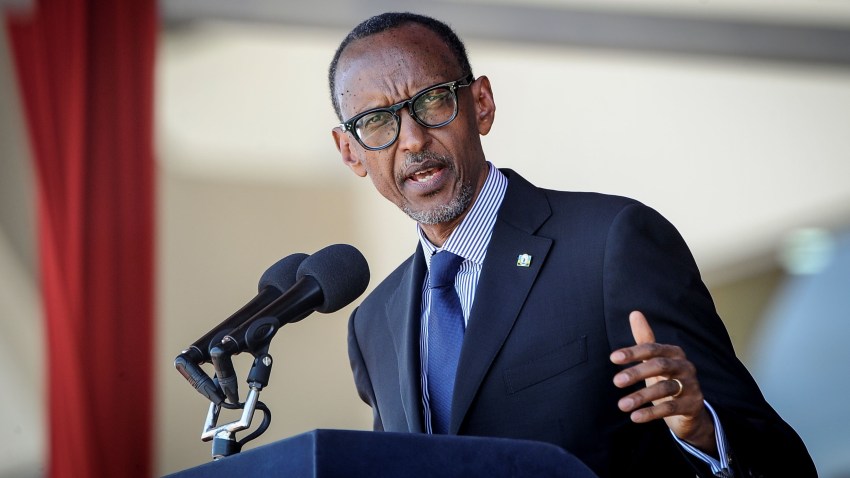Kagame Remains Untouchable in Rwanda’s Presidential Election

Rwandan President Paul Kagame is set to be reelected for a fourth term Monday as Rwandans vote in presidential and legislative elections. Kagame has held power for three decades since leading the rebel group that took control of Rwanda and ended the genocide in 1994. (AP)
Our Take
Rwanda’s elections Monday are far from a free and fair vote, especially the presidential election. During his time in power, Kagame and his regime have routinely targeted any meaningful opposition, using tactics ranging from a weaponized judicial system to enforced disappearances and killings—including transnational repression—to silence critics and opponents. Seven years ago, in the last presidential election, Kagame received 99 percent of the vote. A similar result is expected next week.
The legacy of the genocide—in which 800,000 people, mostly ethnic Tutsis, were killed by extremist Hutus—also continues to play a huge role in Rwanda. For understandable reasons, Kagame’s image as the leader who not only ended the genocide but guided the nation’s reconstruction in its aftermath has given him an almost untouchable status domestically. At the same time, however, his regime has politicized that legacy, with Kagame’s critics at home and abroad routinely portrayed as genocide-deniers.
Under Kagame, Rwanda has also been consistently accused of supporting rebel groups in neighboring countries, most notably the Democratic Republic of Congo. A report circulated earlier this week by U.N. experts says that an estimated 3,000 to 4,000 Rwandan government forces are operating alongside the M23 rebel group, which is composed mainly of Tutsis, in eastern Congo. As we’ve reported previously, the Rwandan-backed M23’s reemergence in 2022 has led to one of the world’s worst humanitarian crises.
Rwanda’s backing of M23, alongside other rebel groups, has frayed bilateral relations with Congo and Burundi to such an extent that there were concerns the tensions could lead to open hostilities, further destabilizing an East African region seeking to prioritize economic development and integration. And yet, Western powers associate Kagame’s time in power with domestic stability, economic growth and an “effective” security partnership in Mozambique. As a result, the West has been eager to overlook the Kagame regime’s domestic human rights abuses and regionally destabilizing behavior.
Rwanda’s civil society and regional neighbors are the ones left to deal with the consequences of that disregard. And with Kagame running virtually unopposed, the election Monday will ensure that they continue to face the same challenges for the foreseeable future.
No comments:
Post a Comment